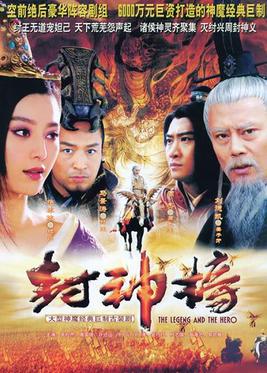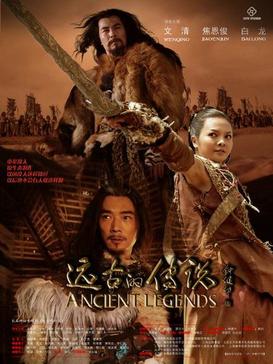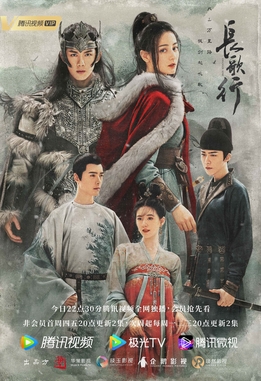
Lady Sun, also known as Sun Ren in the 14th-century historical novel Romance of the Three Kingdoms and Sun Shangxiang in Chinese opera and contemporary culture, was a Chinese noblewoman who lived during the late Eastern Han dynasty. She was a daughter of the warlord Sun Jian, and her (known) older brothers were the warlords Sun Ce and Sun Quan, who founded the state of Eastern Wu in the Three Kingdoms period. Sometime in 209, she married the warlord Liu Bei to strengthen an alliance between Liu Bei and Sun Quan. Around 211, she returned to Sun Quan's domain when Liu Bei left Jing Province and settled in Yi Province.

Kessen II is a strategy game loosely based on the Three Kingdoms period of China. It is the sequel to Kessen in name only; both Kessen and the later sequel Kessen III are based on events in Japan and China. The gameplay involves playing out major battles as the storyline progresses, with cutscenes between each battle for the development of the events and major characters. Before battle, players are given a choice of strategies to take, although they can manually control all units in the battlefield. All units are controlled by the AI unless the player directly intervenes, and battles between forces are carried out in real-time. While in control of a unit, players are able to use special skills or magic spells to turn the tables, although enemy characters are also able to do so.

The Emperor in Han Dynasty, also released under the title The Emperor Han Wu in some countries, is a 2005 Chinese historical drama television series based on the life of Emperor Wu of the Han dynasty. It uses the historical texts Records of the Grand Historian and Book of Han as its source material.

Romance of the Three Kingdoms is a Chinese television series adapted from the classical 14th century novel of the same title by Luo Guanzhong. The series was produced by China Central Television (CCTV) and was first aired on the network in 1994. It spanned a total of 84 episodes, each approximately 45 minutes long. One of the most expensive television series produced at the time, the project cost 170 million yuan. It was completed over four years and involved over 400,000 cast and crew members, including divisions of the People's Liberation Army from the Beijing, Nanjing and Chengdu military regions. Some of the dialogue spoken by characters was adapted directly from the novel. Extensive battle scenes, such as the battles of Guandu, Red Cliffs and Xiaoting, were also live-acted.

Three Kingdoms is a 2010 Chinese television series based on the events in the late Eastern Han dynasty and the Three Kingdoms period. The plot is adapted from the 14th century historical novel Romance of the Three Kingdoms and other stories about the Three Kingdoms period. Directed by Gao Xixi, the series had a budget of over 160 million RMB and took five years of pre-production work. Shooting of the series commenced in October 2008, and it was released in China in May 2010.

The Legend and the Hero was a 2007 Chinese television series adapted from the 16th-century novel Fengshen Yanyi written by Xu Zhonglin and Lu Xixing. The first season started airing on CCTV-8 in February 2007. It was followed by a sequel, The Legend and the Hero 2 in 2009.

Assassinator Jing Ke is a 2004 Chinese television series based on a semi-fictional story of the assassin Jing Ke, who, in 227 BC, attempted to kill Ying Zheng, the king of Qin. Directed by Raymond Lee, the series starred Liu Ye as the titular protagonist, with Peter Ho, Zheng Jiayu, Zhang Tielin, Shao Bing and Zhai Ying playing supporting roles.

Journey to the West is a Chinese television series adapted from the 16th-century novel of the same title. The series was directed and produced by Cheng Lidong and starred Zhenxiang, Victor Chen, Xie Ning and Mou Fengbin in the leading roles. It was first aired on Zhejiang Satellite TV (ZJSTV) in China on 14 February 2010. This version is not to be confused with the 2011 television series of the same title produced by Zhang Jizhong.

Ancient Legends is a Chinese television series based on the myths and legends associated with the origins of the Chinese civilisation. It is based on stories in Chinese mythology and the ancient classic Shan Hai Jing. The series was first broadcast in mainland China on CCTV-1 from 15 August – 6 September 2010.

Justice Bao is a Chinese TV series starring producer Jin Chao-chun as the Song dynasty official Bao Zheng. The series ran for 3 seasons from 2010 to 2012. In addition to Jin, Kenny Ho, Fan Hung-hsuan and Lung Lung again reprise their iconic roles from the 1993 Taiwanese hit Justice Pao and the 2008 Chinese series Justice Bao.

Love Legend of the Tang Dynasty, also known as Da Tang Qing Shi, is a Chinese historical television series based on the legend of an illicit romance between the Tang dynasty Princess Gaoyang and a monk called Bianji. The series was directed by Gong Ruofei, starring Tang Guoqiang, Shen Aojun, Nie Yuan, Zhang Tong, Pan Yueming, Pan Yaowu, and Qin Lan. It was first broadcast in mainland China in 2001.
The Investiture of the Gods is a Chinese shenmo television series directed by Wang Weiting and Yang Jianwu. The television series are based on the classical 16th-century novel Fengshen Yanyi written by Xu Zhonglin and Lu Xixing.

Singing All Along is a 2016 Chinese television series produced by Ruby Lin, starring Lin and Yuan Hong. Set in 1st-century imperial China, the drama is based on Li Xin's (李歆) 2007–2009 romantic novel series Xiuli Jiangshan (秀丽江山) and focuses on the relationship between Liu Xiu, a peasant-turned-Eastern Han dynasty founder, and Yin Lihua, the love of his life. Although the original novel involved time travel, the television series does not contain those parts.

Cao Cao is a Chinese television series based on the life of Cao Cao, a warlord who rose to power towards the end of the Eastern Han dynasty and laid the foundation for the state of Cao Wei in the Three Kingdoms period. Directed by Hu Mei, the series aimed to portray a more historically accurate image of Cao Cao, who is traditionally depicted as a villain in Chinese culture. Starring Zhao Lixin as the eponymous character, the series was filmed at the Xiangshan Film City in Ningbo, Zhejiang between 1 November 2011 and 15 March 2012.

Swords of Legends is a 2014 Chinese television series based on the role-playing video game Gu Jian Qi Tan developed by Shanghai Aurogon. It aired on Hunan TV from 2 July to 25 September 2014.
The Faces of My Gene is a 2018 Chinese fantasy adventure comedy film co-written and directed by Guo Degang and starring Yue Yunpeng and Lin Chi-ling. The film premiered in China on 16 February 2018. The film picks up the story of a writer and his ancestors after he crosses ancient times.
Court Lady is a 2021 Chinese television series produced by Yu Zheng, starring Xu Kai and Li Yitong.

The Long Ballad, also known as Chang Ge Xing, is a 2021 Chinese historical series based on the 2011 manhua of the same name by Xia Da. It is directed by Zhu Ruibin and stars Dilraba Dilmurat, Leo Wu, Zhao Lusi and Liu Yuning. Set against the backdrop of the Tang dynasty, during the reigns of Emperor Gaozu and Emperor Taizong, the drama tells the story of an imperial princess who seeks revenge for her family, and in doing so, her fate interwines with that of a tribal prince. Although it features many real historical figures, most of the relationship between the characters and plotlines are fictional. Chinese American Film Festival 2021 Golden Angel Award for Dilraba Dilmurat Golden Angel Award for Outstanding Television Series "The Long Ballad"